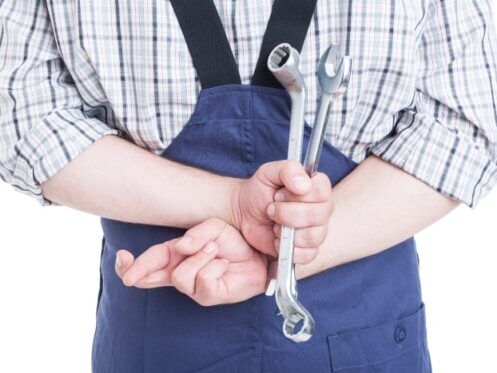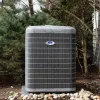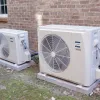HVAC companies fail more often than nearly any other type of business in the United States. Why might that be?
Is it because competition is cutthroat? After all, there are several heating and air contractors in most markets, and many have been in business for years. Or is it because the owners didn’t start with a solid business plan, don’t understand how to manage growth, or can’t handle overhead?
Any of those things might contribute to a business’s demise. But here’s another factor that also leads to failure: not behaving ethically. In the Atlanta market, we’re constantly cleaning up messes created by contractors who don’t put their client’s interests first.
The good news is that unethical HVAC contractors often go out of business. The bad news is that they create a lot of havoc before they fail.
What does it mean for a contractor to behave “ethically?”
We’re just one company with one point of view, but here’s our take on ethical behavior in the HVAC and home performance industry. Ethical companies:
- Put clients before profits: Ethical companies don’t push equipment that provides a big profit margin but isn’t the best solution for a client. They also don’t install a piece of equipment just because a client thinks it’s what he or she needs to install. Instead, they point clients to the best equipment for their needs and budget, even if it results in a smaller scale.
- Invest in education and training: HVAC is not a “rule of thumb” work, and no two houses are the same. When technicians are properly trained, they select and install effective, safe equipment. They know what it means to provide top-notch workmanship, and they get fewer callbacks from disappointed clients. Founders and managers should also stay abreast of evolving technologies and industry best practices.
- Employ professionals and treat them well: Motivated, well-compensated professionals perform much better work than transient subcontractors who have little stake in a company’s success. An ethical company doesn’t exploit cheap labor opportunities just because they’re cheap. Inexpensive workmanship is usually shoddy workmanship, and it never helps a company build long-term relationships with clients.
- Compete on value, not price: An ethical HVAC contractor won’t always have the lowest prices. After all, they’re paying their technicians a fair wage and investing in training and education! You’ll usually get a lower price with companies that don’t do those things, but you could end up paying more to fix their mistakes.
Here’s the “big picture” problem that plagues the industry: Contractors sell HVAC as a commodity service. They’ve convinced many consumers – and some have even convinced themselves – that the service is the same no matter who performs it.
But that’s a dangerous way to do business.
Case in point: Fancy new equipment, less comfort.
A man from Sandy Springs called us one day. He’d recently hired a company to install a new heat pump, but he was less comfortable than ever. “It just doesn’t run very often,” he told us.
We were pretty sure we knew what was up. It sounded like the HVAC contractor who installed the heat pump gave him an oversized unit. As it turns out, we were correct. But that was only the beginning.
Not only was the air conditioner not running often enough, but the installer had overcharged the refrigerant. The air conditioner wasn’t operating anywhere close to peak efficiency, and the compressor motor was at risk of failure.
What’s more, the air coming out of the supply vents had a musty smell. It turns out that the HVAC contractor had, per the client’s request, installed new, insulated ductwork as part of the replacement job.
Unfortunately, they completely botched the installation.
The return ducts had serious leaks – some were so big; you could put your hand through them. Because of the leaky ductwork, crawl space air was getting sucked into the return. The client’s crawl space was damp and had splotches of fuzzy mold growing on the floor joists, hence the musty smell.
Here’s a rundown of what happened:
- The HVAC contractor upsold the client on a bigger heat pump without regard to comfort. Manual J load calculation? Forget it. This contractor didn’t care about the client enough to perform one.
- Nobody trained the technicians on proper refrigerant charge procedures, so they did it wrong and almost destroyed the client’s new compressor.
- Low-quality workmanship resulted in leaky ductwork, creating unhealthy conditions (musty air) inside the client’s home.
- Nobody on the job told the client his crawl space was moldy, so he didn’t know there was a health concern.
- The client had all of this work done for a rock bottom price. That was probably possible because the contractor doesn’t invest in technician training and/or took advantage of cheap subcontractor labor.
We sealed up the ductwork and installed a whole house dehumidifier to mitigate the impact of of the client’s oversized, short cycling air conditioner. We also scheduled an appointment to remediate the mold and encapsulate the crawl space. After fixing the ductwork and installing the dehumidifier, the client ended up paying more than he would have paid to install a properly sized heat pump.
This sort of thing happens a lot. Unethical business practices allow it to continue.
How to find an ethical contractor for HVAC and home performance
So, how do you know whether an HVAC company is behaving ethically? Online reviews are helpful, but they can be misleading if a client has just had something done. That’s because many installation deficiencies and home performance problems only become apparent after months or years have gone by.
Here are our suggestions for identifying ethical contractors:
- Ask about training and certifications. A good place to start is the North American Technician Excellence (NATE) certification. It’s kind of a minimum requirement for choosing an HVAC company, but a lot of contractors out there haven’t bothered with it! Kick it up a notch by looking for Building Performance Institute (BPI) certification. Managers with BPI certification know that the home is a system and see HVAC equipment as just one element (out of many) of a comfortable environment.
- Find out how the company sizes new equipment. If you’re looking for equipment quotes, ask how the company determines the proper size for your air conditioning and heating units. For example, they should always perform a Manual J load calculation. “We follow rules of thumb” is a red flag response.
- Get a sense of their employment practices. Do the techs work for the company? Are they subcontractors? Having a team of full-time employee technicians is a good sign. Anything else is a bad sign.
- Find out what the words “building science” mean to the contractor. HVAC isn’t all about the equipment. Companies that have their client’s best interests in mind should seek to solve problems by optimizing the building envelope, not just installing new equipment. In some situations, ethical companies may prefer to perform energy assessments prior to recommending new equipment.
When it comes to selecting an HVAC contractor, the stakes are high. The client we described earlier was breathing unhealthy air, all because of bad HVAC work!
It can be worse, though. We’ve done safety assessments and found carbon monoxide leaks that were putting clients at risk. Remember: We’re dealing with combustion, construction equipment, potentially hazardous building materials, and powerful machinery. HVAC isn’t a commodity service – the consequences of unethical business practices are serious.
Consumers should always know what they’re getting with an HVAC contractor. And what they get should be the best, safest products and services for their needs and budget. Period.






